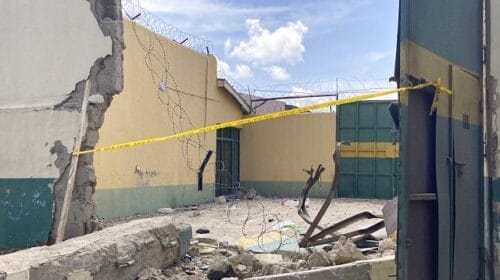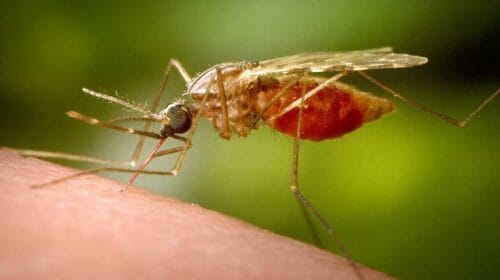UN agencies warn of rising hunger risk in 18 ‘hotspots’

Sudan, Burkina Faso, Haiti and Mali have been elevated to the highest alert level, joining Afghanistan, Nigeria, Somalia, South Sudan and Yemen.
Additionally, a likely El Niño – a naturally occurring climatic phenomenon that has a warming effect on ocean surface temperatures in the central and east Pacific – is also raising fears of climate extremes in vulnerable nations.
Against ‘business-as-usual’
The report calls for urgent humanitarian action to save lives and livelihoods, and to prevent starvation and death.
“Business-as-usual pathways are no longer an option in today’s risk landscape if we want to achieve global food security for all, ensuring that no one is left behind,” said Dongyu Qu, the FAO Director-General.
He underlined the need for immediate interventions in the agricultural sector “to pull people from the brink of hunger, help them rebuild their lives, and provide long-term solutions to address the root causes of food insecurity.”
Worse than ever
Acute food insecurity is set to potentially increase in 18 hunger “hotspots”, comprising a total of 22 countries, according to the report.
“Not only are more people in more places around the world going hungry, but the severity of the hunger they face is worse than ever,” said Cindy McCain, WFP Executive Director.
The Sudan conflict is already driving mass displacement and hunger. More than one million citizens and refugees are expected to flee the country, while an additional 2.5 million inside its borders are set to face acute hunger in the coming months.
The report warned that a possible spillover of the crisis raises the risk of negative impacts in neighbouring countries. If the conflict continues, it could spark further displacement and disruptions to trade and humanitarian aid flows.
Economic shocks continue
Meanwhile, economic shocks and stressors continue to drive acute hunger in almost all the hotspots, carrying over trends seen globally in 2022, largely due to fallout from the COVID-19 pandemic and the war in Ukraine.
Afghanistan, Nigeria, Somalia, South Sudan and Yemen remain at the highest alert level for acute hunger.
Alongside Sudan, three other countries – Haiti, Burkina Faso and Mali – also have been elevated to this level because of movement restrictions affecting people and goods.
“All hotspots at the highest level have communities facing or projected to face starvation, or are at risk of sliding towards catastrophic conditions, given they have already emergency levels of food insecurity and are facing severe aggravating factors. These hotspots require the most urgent attention,” the UN agencies said.
The report listed the Central African Republic, the Democratic Republic of the Congo, Ethiopia, Kenya, Pakistan and Syria as hotspots with very high concern, along with Myanmar.
All of these countries have a large number of people facing critical acute food insecurity, coupled with worsening drivers that are expected to further intensify life‑threatening conditions in the coming months.
The other hotspots are Lebanon, Malawi, El Salvador, Guatemala, Honduras and Nicaragua.





